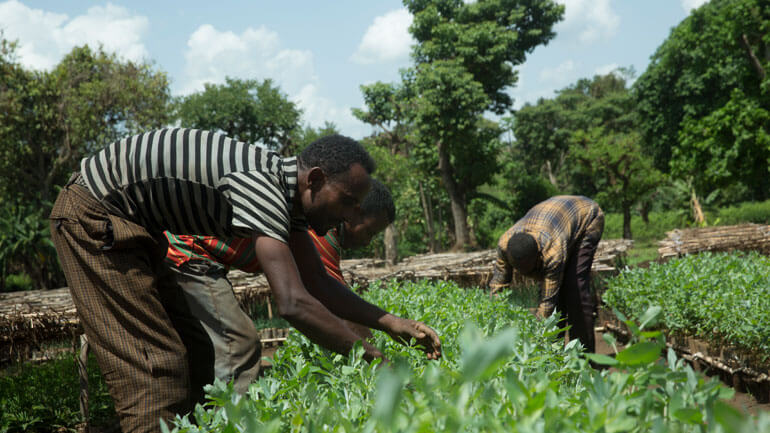
Objective
Support the UN Decade on Ecosystem Restoration by providing guidance on how to increase financing and economic incentives for restoration and create enabling socioeconomic and governance conditions.
Concept and Approach
Aligning Nature-based solutions with landscape restoration efforts can provide cost-effective ways of protecting, sustainably managing, and restoring ecosystems, while also addressing societal challenges such as climate change, biodiversity loss, and poverty and inequality. PROGREEN is well positioned to add value to current global and regional initiatives working on halting and reversing ecosystem degradation, and as such this Flagship is linked with the Finance Task Force of the UN Decade on Landscape Restoration. The Finance Task Force is an excellent vehicle and venue for developing and sharing knowledge and best practices on financing landscape restoration, including influencing the upstream rules on how financial institutions make allocation decisions. The Flagship will supplement the work of the Task Force with analytics, publications, demo projects, innovative financing instruments.
Overview
Landscape and ecosystem restoration are both urgent and fundamental to achieving the Sustainable Development Goals on climate change, poverty eradication, food security, water and biodiversity conservation (as stated by the United Nations Decade on Ecosystem Restoration). To be effective, timely and sustainable, restoration efforts need vastly scaled-up investment, while also generating employment and inclusion and equitable benefit sharing within and between communities using the resources, including disadvantaged groups.
Supported by PROGREEN, the World Bank is chairing the Finance Task Force of the UN Decade on Ecosystem Restoration. Consolidated in FY22, the Task Force is working to catalyze action to contribute to unlocking the capital needed to scale up investment in ecosystem restoration through the development of research tools, databases, projects, and partnerships. The Task Force convenes 13 members representing private sector companies and banks, multilateral institutions, non-governmental organizations, and bilateral cooperation agencies, working on ecosystem restoration. Led by the World Bank, monthly Task Force meetings share experiences and lessons learned from restoration work, collate feedback on ongoing work and analysis, and identify opportunities to collaborate with UN Decade partners and other stakeholders.
Outputs
The guidance, case studies and outreach produced and supported by this Flagship will:
- Help to counter economic forces and vested interests that result in ecosystem degradation
- Build momentum to reorient public support (e.g., subsidies) towards ecosystem restoration in an appropriate manner
- Incentivize public and corporate investors to co-invest in ecosystem restoration, including in areas where the benefits from restoration are predominantly public goods
Progress and expected results
- Stock Take report: Key analysis activities commenced in FY22 providing a global overview of the needs, potential and challenges of restoration finance, as well a Task Force roadmap outlining activities through 2030
- Case Studies analysis: highlighting promising examples of large-scale and long-term ecosystem restoration from around the world. These analyses are expected to be released in the first half of FY23
- Monthly Task Force meetings: regular meetings and communications throughout FY22 have been instrumental in shaping of the Stock Take report and Case Study analysis, which included selecting cases for inclusion for supporting country submissions